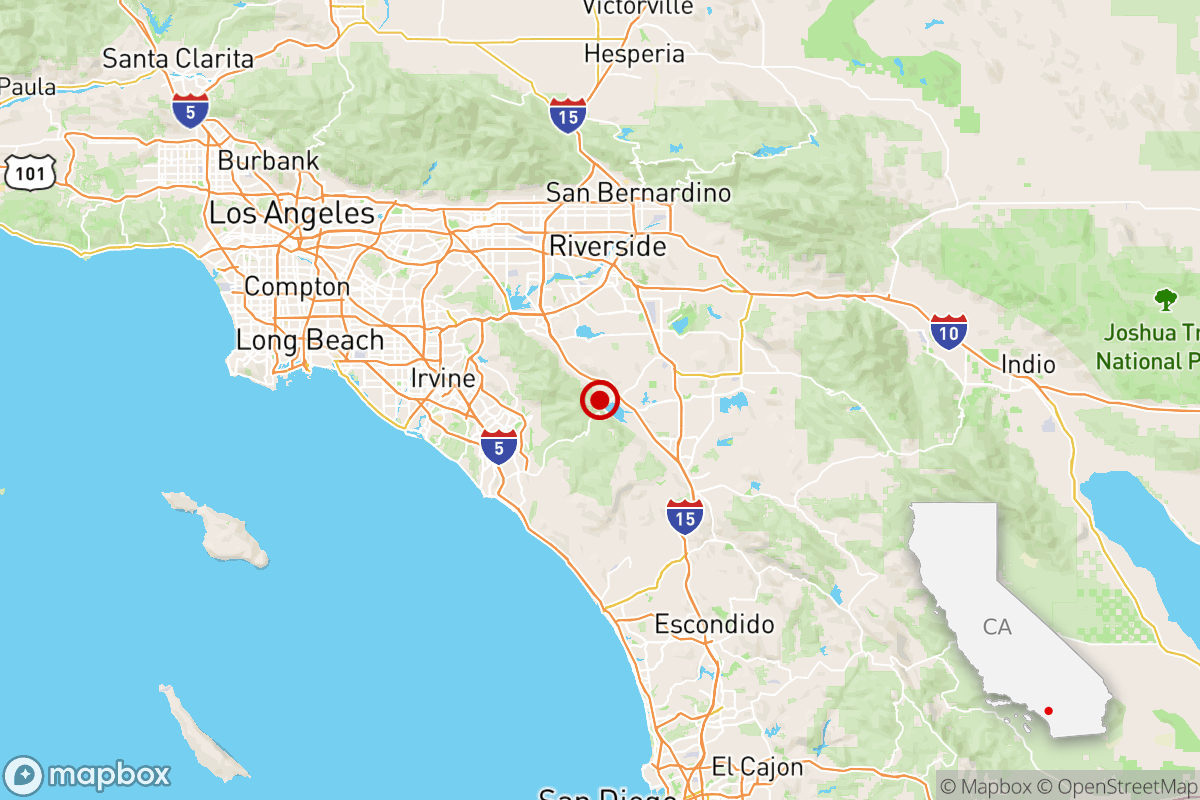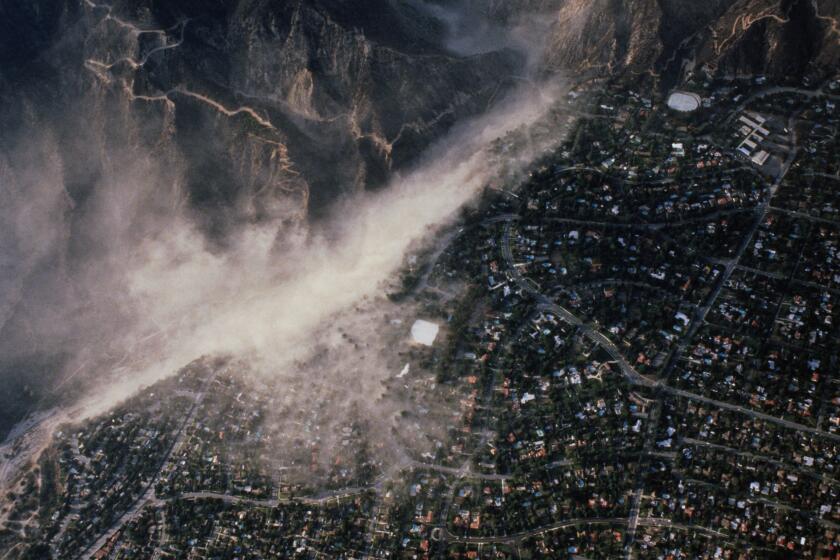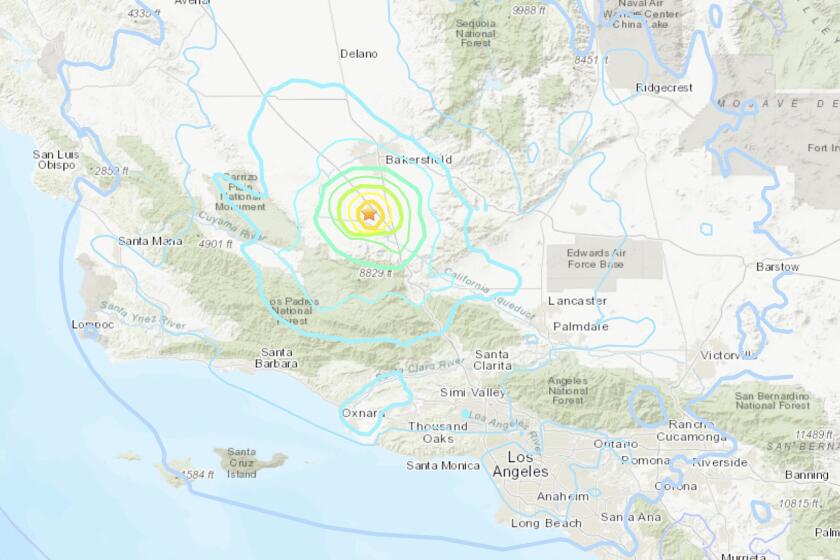Magnitude 3.9 earthquake hits Lake Elsinore, latest temblor to rattle Southern California

- Share via
A magnitude 3.9 earthquake struck just outside the city limits of Lake Elsinore on Thursday morning, the latest modest temblor to shake Southern California.
Weak shaking may have been felt in areas closest to the epicenter, which included Orange County, the Inland Empire and northern San Diego County, according to the U.S. Geological Survey. People who filed crowdsourcing reports on feeling the quake also reported shaking as far away as Los Angeles, Santa Clarita and San Diego.
No damage was reported in Lake Elsinore from the earthquake, which struck at 9:39 a.m., the California Department of Forestry and Fire Protection said.
The quake occurred in the general area of the Elsinore fault zone. It’s one of the largest in Southern California, but it has been one of the quietest in historical times, according to the Southern California Earthquake Data Center.
“The southeastern extension of the Elsinore fault zone, the Laguna Salada fault, ruptured in 1892 in a magnitude 7 quake, but the main trace of the Elsinore fault zone has only seen one historical event greater than magnitude 5.2 — the earthquake of 1910, a magnitude 6 shock near Temescal Valley, which produced no known surface rupture and did little damage,” the Southern California Earthquake Data Center said.
So far this year, there have been more than 40 earthquakes of magnitude 3.9 or greater in and around California and Nevada, according to the USGS. That’s more than double the number of earthquakes in that magnitude range over the same time in 2022 and 2023 but fewer than the 52 quakes in that magnitude range for the first 8½ months in 2021.
Only a few of this year’s moderate quakes — those that shake up highly populated areas — have garnered much attention.
Southern California has been rattled by several quakes in recent days. On Monday, a magnitude 4.4 temblor in El Sereno, on the Eastside of Los Angeles, hit. Last week, a magnitude 5.2 quake near Bakersfield and the Grapevine was widely felt.
Monday’s magnitude 4.4 quake that rattled Southern California is believed to have struck on a well-known and dangerous fault system known as the Puente Hills thrust fault system.
Monday’s earthquake, centered about 1,100 feet southwest of the intersection of Huntington Drive and Eastern Avenue, occurred in the same general area of a pair of earthquakes in early June — a magnitude 3.4 on June 2 and a magnitude 2.8 on June 4, also associated with the Puente Hills thrust fault system. There was also a magnitude 2.9 earthquake in the same area on June 24.
Thursday’s Lake Elsinore quake was centered more than 50 miles to the southeast. It occurred at a depth of 5.6 miles.
The last earthquakes to bring significant damage to California were the Ridgecrest quakes of 2019, which topped out at magnitude 7.1. Naval Air Weapons Station China Lake, in California’s Mojave Desert, suffered billions of dollars in damage, and officials have embarked on a $3.9-billion recovery program.
Did you feel this earthquake? Consider reporting what you felt to the USGS.
The magnitude 5.2 earthquake near Bakersfield was felt over a wide area of Southern California. Experts say there are several reason for this, including its size, time of night and the so-called ‘basin effect.’
Are you ready for when the Big One hits? Get ready for the next big earthquake by signing up for our Unshaken newsletter, which breaks down emergency preparedness into bite-sized steps over six weeks. Learn more about earthquake kits, which apps you need, Lucy Jones’ most important advice and more at latimes.com/Unshaken.
An earlier version of this story was automatically generated by Quakebot, a computer application that monitors the latest earthquakes detected by the USGS. A Times editor reviewed the post before it was published. If you’re interested in learning more about the system, visit our list of frequently asked questions.
More to Read
Sign up for Essential California
The most important California stories and recommendations in your inbox every morning.
You may occasionally receive promotional content from the Los Angeles Times.














